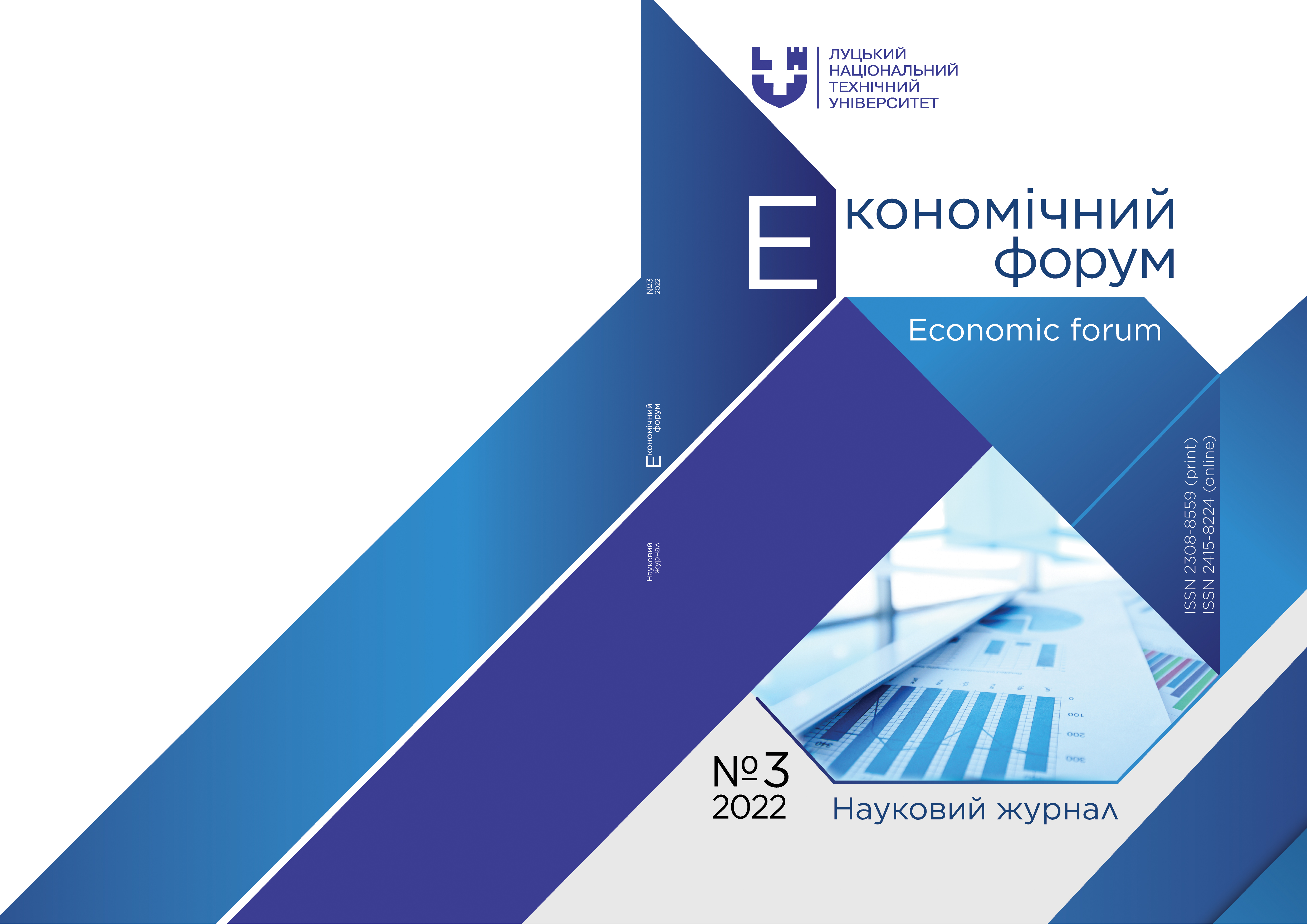THE MILITARY DIMENSION OF SUSTAINABLE DEVELOPMENT: A NEW CHALLENGE FOR MODERN DIPLOMACY
Abstract
This article focuses on the potential threat to the implementation of the concept of sustainable development, as the economic, social and environmental components undergo negative changes as a result of the Russian-Ukrainian war, as a confrontation between a terrorist country and a democratic progressive world, acquiring such destructive features as a global economic crisis, genocide and ecocide. The aim of our study is to demonstrate the need to expand the range of sustainable development to an additional dimension - the military, in response to the challenges of modern world politics. The article reveals the essence of the military dimension of sustainable development along with economic, social and environmental dimensions based on methods of empirical observation and deduction. Empirical analysis allowed us to identify tools to ensure the military dimension of sustainable development and give it a description. The definition of military decoupling as one of the indicators of effective implementation of the sustainable development concept, using the methods of theoretical analysis, synthesis and analogy. It is substantiated that military decoupling, by its nature, is more related to the decoupling of environmental impact than to resource decoupling. The application of the results of the research in practice will allow to respond objectively to the challenges of modern world politics by using appropriate tools: to transform modern diplomacy into uncompromising in matters of compliance with the norms of international law by all participants in international relations to an equal extent, to correct the shortcomings of international organizations, fill gaps in international law, increase the effectiveness of global security and adequate timely response to global threats, to effectively solve the global problems of mankind, to mitigate the negative effects of globalization, when the protracted crisis in one region of the world eventually spreads to the entire world community. The obtained research results and further study of military sustainable development and military decoupling will actualize modern diplomacy, will contribute to the further unhindered implementation of the concept of sustainable development, and the short-term perspective of applying such an approach will demonstrate a high level of adaptability of the world community to relevant conditions, and therefore the stability of the global world in the face of new challenges.
Downloads
References
2. Indicators to measure decoupling of environmental pressure from economic growth. (2002). Executive summary. The OECD Environment Programme. 3 p. Retrieved from https://www.oecd.org/env/indicators-modelling-outlooks/1933638.pdf. [in English]
3. Fischer-Kowalski, M. et al. (2011). Decoupling natural resource use and environmental impacts from economic growth: A Report of the Working Group on Decoupling to the International Resource Panel. Retrieved from https://www.resourcepanel.org/reports/decoupling-natural-resource-use-and-environmental-impacts-economic-growth. [in English]
4. Korolchuk, L. (2021). Dekapling ekonomichnogo zrostannja vid ekologichnoi shkody: teoretychnyi aspect [Decoupling of economic growth from environmental damage: a theoretical aspect]. Naukovyi visnyk Mukachivskogo dergavnogo universytetu. Serija “Ekonomika”: zbirnyk yaukovyh prac. Mukachevo: Vydavnyctvo MDU,8 (1), 37-45. DOI: 10.52566/msu-econ.8(1).2021.37-45. Retrieved from https://economics-msu.com.ua/en/article/dekapling-ekonomichnogo-zrostannya-vid-ekologichnoyi-shkodi-teoretichny-aspekt [in Ukrainian]
5. Transforming our world: the 2030 Agenda for Sustainable Development. (2015). A/RES/70/1. United Nations. Retrieved from https://sustainabledevelopment.un.org/content/documents/21252030%20Agenda%20for%20Sustainable%20Development%20web.pdf. [in English]
6. Treaty on the Non-Proliferation of Nuclear Weapons (NPT). (1970). United Nations. Retrieved from https://www.un.org/disarmament/wmd/nuclear/npt/ [in English]
7. Our Common Future: Report of the World Commission on Environment and Development. (1987). Retrieved from https://sustainabledevelopment.un.org/content/documents/5987our-common-future.pdf. [in English]
Copyright (c) 2022 Корольчук Леся

This work is licensed under a Creative Commons Attribution-NonCommercial 4.0 International License.


1.png)








